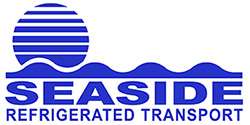When the Corruption Law came into force in 2016, Korean society became interested in anti-corruption and anti-corruption measures and, as a result, many issues were addressed. The fact that many companies in Korea are implementing compliance programs to prevent bribery and corruption shows that awareness of the fight against corruption and corruption is being increased. Tak-Kyun Hong`s main areas of activity are fighting corruption and defending against white-collar crime. He has led a number of investigations and litigation in the areas of fraud, embezzlement, securities offences, technology theft, criminal cartels, criminal delivery and anti-corruption, both as a prosecutor and as a defence lawyer. Businesses should comply with the legal framework where there are specifically applicable rules. In addition to complying with legal requirements, companies must inform their employees of anti-corruption laws and the consequences of violations of the law. When the Inappropriate Solicitation and Corruption Act, popularly known as the “Anti-Corruption Law” or “Kim Young-ran Law” (hereinafter referred to as the “Anti-Corruption Law”), first came into force on September 28, 2016, it quickly became a burning social issue. On the one hand, there was a growing expectation that the new law would serve as an effective means of strengthening the integrity of public officials; At the same time, it was also criticized that the scope of the new law was too broad and that the setting of strict limits was exaggerated, even for trivial things such as the price of meals. This year marks the fifth anniversary of the implementation of the Anti-Corruption Law, which provides an opportunity to look back at how it has been applied since its inception in order to anticipate how this law will be applied in the future. The Improper Solicitation and Corruption Act (colloquially Kim Young-ran Act) is a 2016 anti-corruption law in South Korea. The bill is linked to Kim Young-ran, the former head of the Anti-Corruption and Civil Rights Commission, who proposed it in August 2012, and is often referred to as the Kim Young-ran Act (or law or bill). [1] The bill was also translated into the Prohibition of Corruption and Corruption Act, although “Inappropriate Solicitation and Corruption Act” is the official name.
[2] [3] The law was passed in 2015 and came into force on September 28, 2016. [4] Since the criminal liability of companies is not recognized by the Penal Code, the absence of a compliance program is not in itself a criminal offence within the meaning of the Penal Code. Some anti-corruption regulations require certain types of companies to set up compliance programs and impose penalties for non-compliance. The granting and acceptance of a bribe is governed by articles 129 to 133 of the Penal Code, which cover anti-corruption laws. Seong-Jin Choi`s main areas of activity are anti-corruption, financial crime, anti-money laundering and high-tech crime. As a prosecutor for over 17 years, he has overseen a number of investigations and litigation in the areas of fraud, financial crime, high-tech crime, money laundering and anti-corruption. He joined Shin & Kim in 2014. In Korea, there has not yet been an accumulation of investigations or judicial proceedings dealing with cases of foreign bribery. Recently, however, there was a decision of the Seoul Supreme Court of Appeal40 that concerned the scope of a foreign official under the Prevention of International Corruption Act. That judgment examined whether the Korean branch manager of Eastern Airlines fell within the jurisdiction of a foreign official under article 2 of the Prevention of International Corruption Act. The Supreme Court of Appeal did not find the manager guilty of corruption on the grounds that, although there were numerous documents in support of Eastern Airlines as a company in which the Chinese government contributed more than 50% of the paid-up share capital and exercised substantial control over the decision on material projects or the appointment and dismissal of senior managers, and it was not an airline that competed with other private companies on the same basis without preferential subsidies or other benefits, the allegation was not supported by substantial evidence or data, and it was therefore difficult to establish beyond a reasonable doubt that Eastern Airlines was an airline under the jurisdiction of a foreign official. As we discussed, Korea punishes both domestic and international corruption, and the country punishes corruption not only in the public sector, but also in the private sector.In addition, the introduction of the Corruption Act prohibits those with social influence, such as civil servants, journalists and school staff, from taking or giving away money or valuables, whether the money or valuables are donated in the course of their duties. In addition, Korea regulates various other anti-corruption practices and has rapidly introduced new anti-corruption and anti-corruption systems and measures, including in its attempts to enact regulations on conflict prevention. Korean society is expected to become more transparent as these systems evolve and improve. On the 28th. In September 2016, the Law on Inadmissible Advertising and Corruption came into force, a new, very strict and far-reaching anti-corruption law. Korea`s Penal Code does not establish a framework for internal compliance programs. However, specific anti-bribery regulations require certain types of established compliance programs. January 2017 – At the end of September, 160 elderly citizens enjoyed their annual tourist visit as part of a Seoul district community program.

